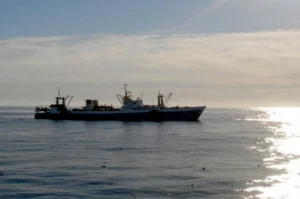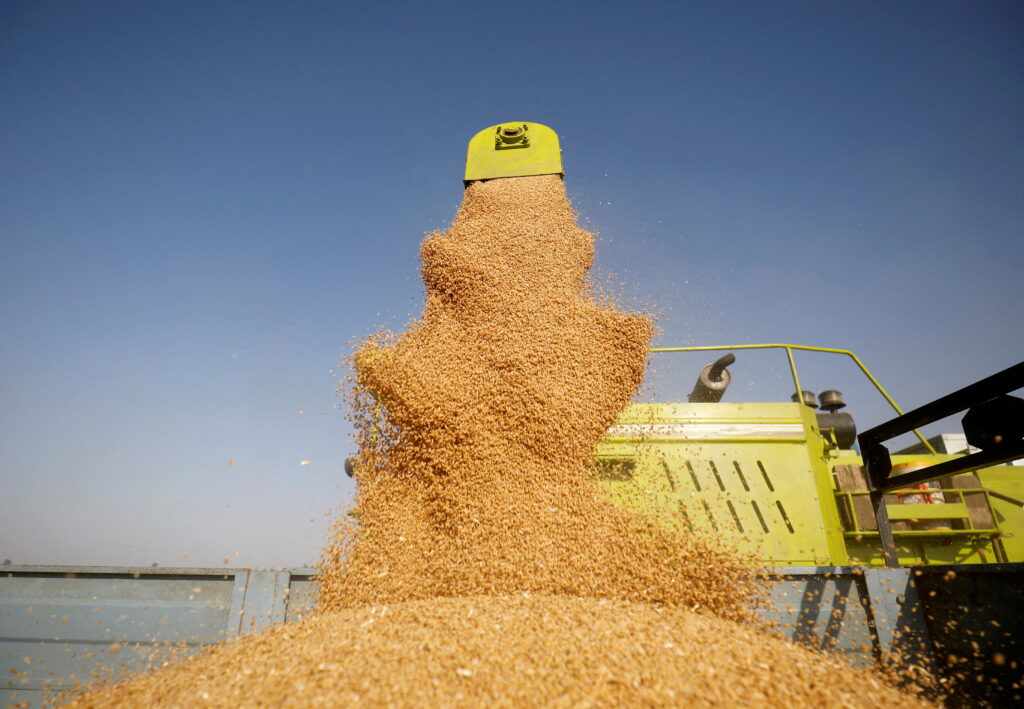Defence Intelligence: Russia planned to derail the Grain Agreement — the JCC blocked inspections by order of the Kremlin (photo)

The Main Directorate of Intelligence intercepted a report on the Grain Agreement for the highest military and political leadership of the Russian Federation.
A closed report “on the work of the Russian part of the joint coordination center during the implementation of the Initiative” for the Kremlin leadership reveals exactly how the Russians disrupted the Zernov agreement, the Defence Intellingence reported.
In general, the text of the document is devoted to the technologies that were used to hinder the implementation of the “grain corridor” and, as a result, led to the final termination of the agreement.
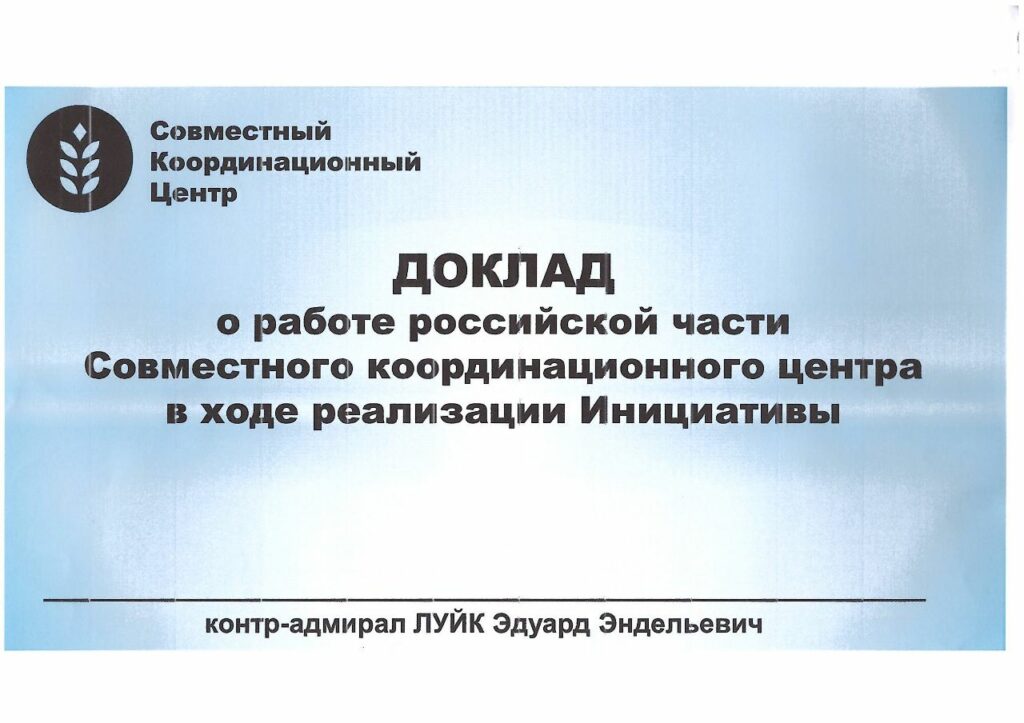
In the report, the so-called “joint coordination center” saw its main task as the maximum reduction of the volume of grain exported within the framework of the Grain Agreement. In particular, the document states: “Qualitative inspection of ships was also one of the key elements of curbing the uncontrolled growth of grain exports from Ukrainian ports. At the same time, the activities of Russian inspectors were built in strict accordance with the developed methodical documents on the organization of ship inspections. According to the results of the conducted inspections, participation in the Initiative was restricted for 46 vessels and 303 vessels were restricted in their movement for a total period of 342 days.”
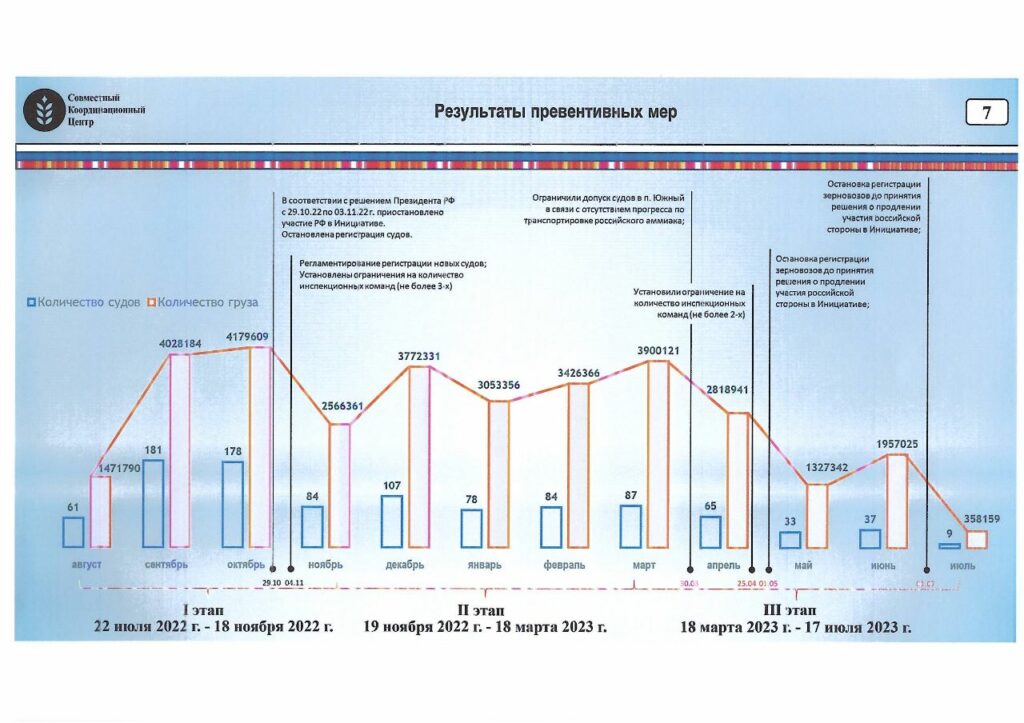
Measures to disrupt the Grain Agreement were divided into several stages. At the first, on the initiative of the Russian president, Russia’s participation in the Grain Agreement was suspended from October 29, 2022 to November 3, 2022. According to the document, this led to a drop in grain exports from 4.2 million tons in October to 2.6 million tons in November. The next stage is measures to limit the admission of vessels to the Port of Pivdennyi, reduce the number of inspection teams (no more than two), and stop the registration of grain carriers.
These measures allowed the Russians to “effectively restrain the number of ships heading to Ukrainian ports and significantly limit the volume of food exports from Ukraine, which in general led to the inability of Kyiv to export about 20 million tons of cargo.”
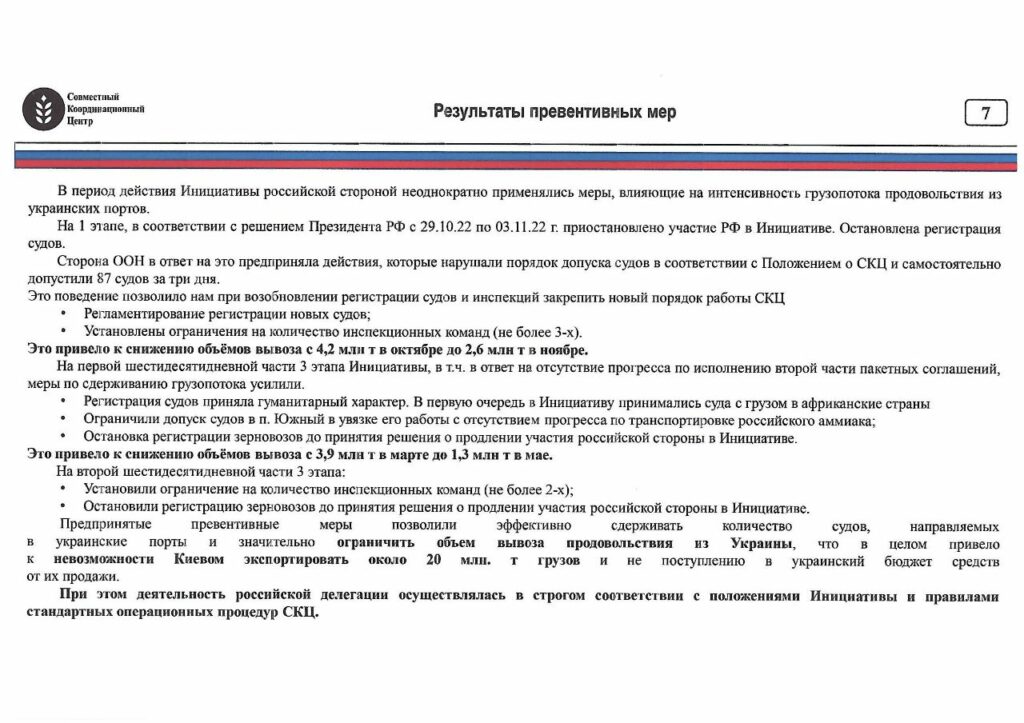
The Russians report that the smallest amount of food exported from Ukrainian ports — 7.8 million tons — fell on the third stage of the Initiative (from March 19 to July 17, 2023).
Particular attention was paid to the disruption of grain supplies under the program of the UN World Food Program: “Ukrainians’ attempts to use the Black Sea initiative to continue the so-called “Grain from Ukraine” program with the involvement of vessels chartered under the line of the World Food Program have been stopped. The registration of such vessels took place only after the submission of written commitments not to participate in such actions.”
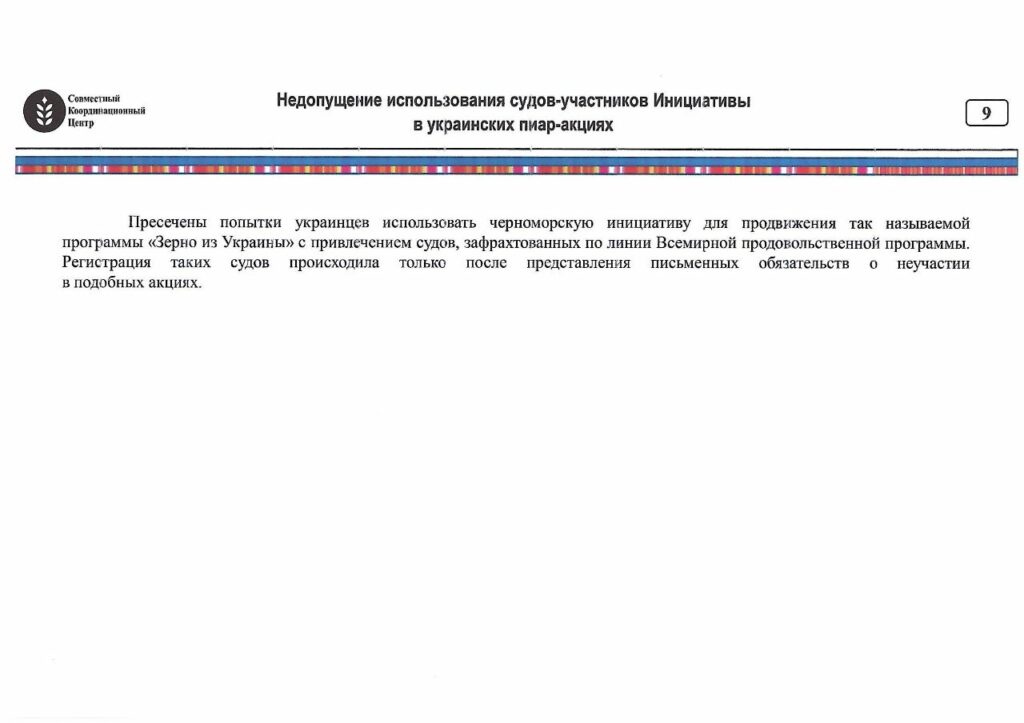
In conclusion, the authors of the report report: “The accumulated archive of knowledge will allow, when solving similar problems, to achieve a high level of efficiency in the shortest possible time.”
So, in case of continuation of the Grain Agreement, the Russians will use all the accumulated “experience” to effectively disrupt the agreements.
The document shows that all actions to disrupt the Grain Agreement are part of a single pre-developed plan. And targeted shelling of the Ukrainian port infrastructure is just another step in its implementation.


